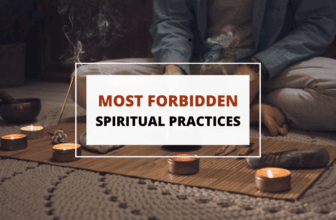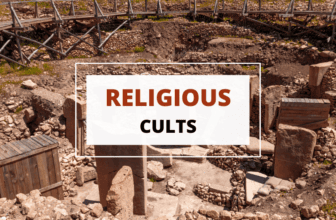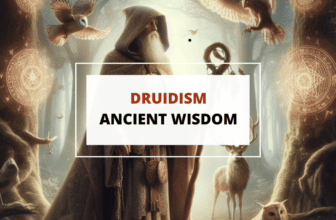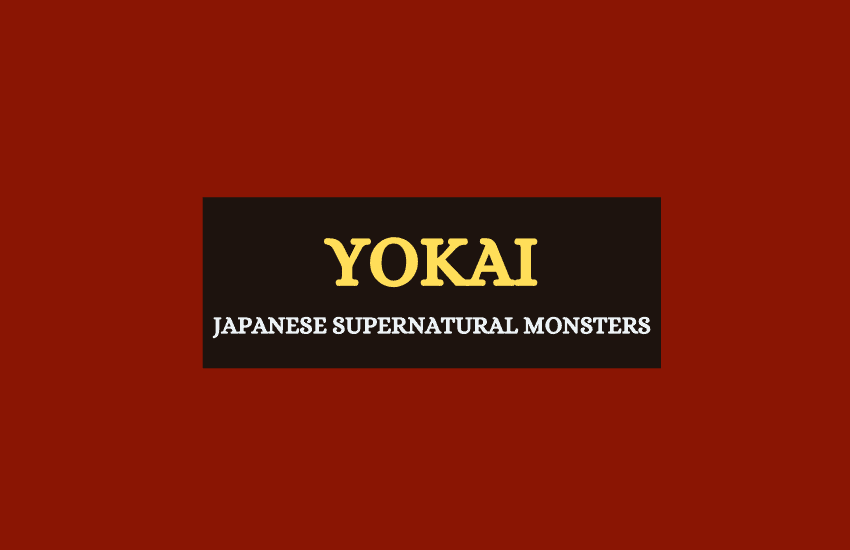
Table of Contents
Together with kami (gods), yokai is one of the words most often used when talking about Japanese Shinto mythology. The yokai are spirits or ghosts and a type of supernatural monsters in Japanese mythology. However, they’re more complex than the general view of ghosts and spirits.
What are Yokai?
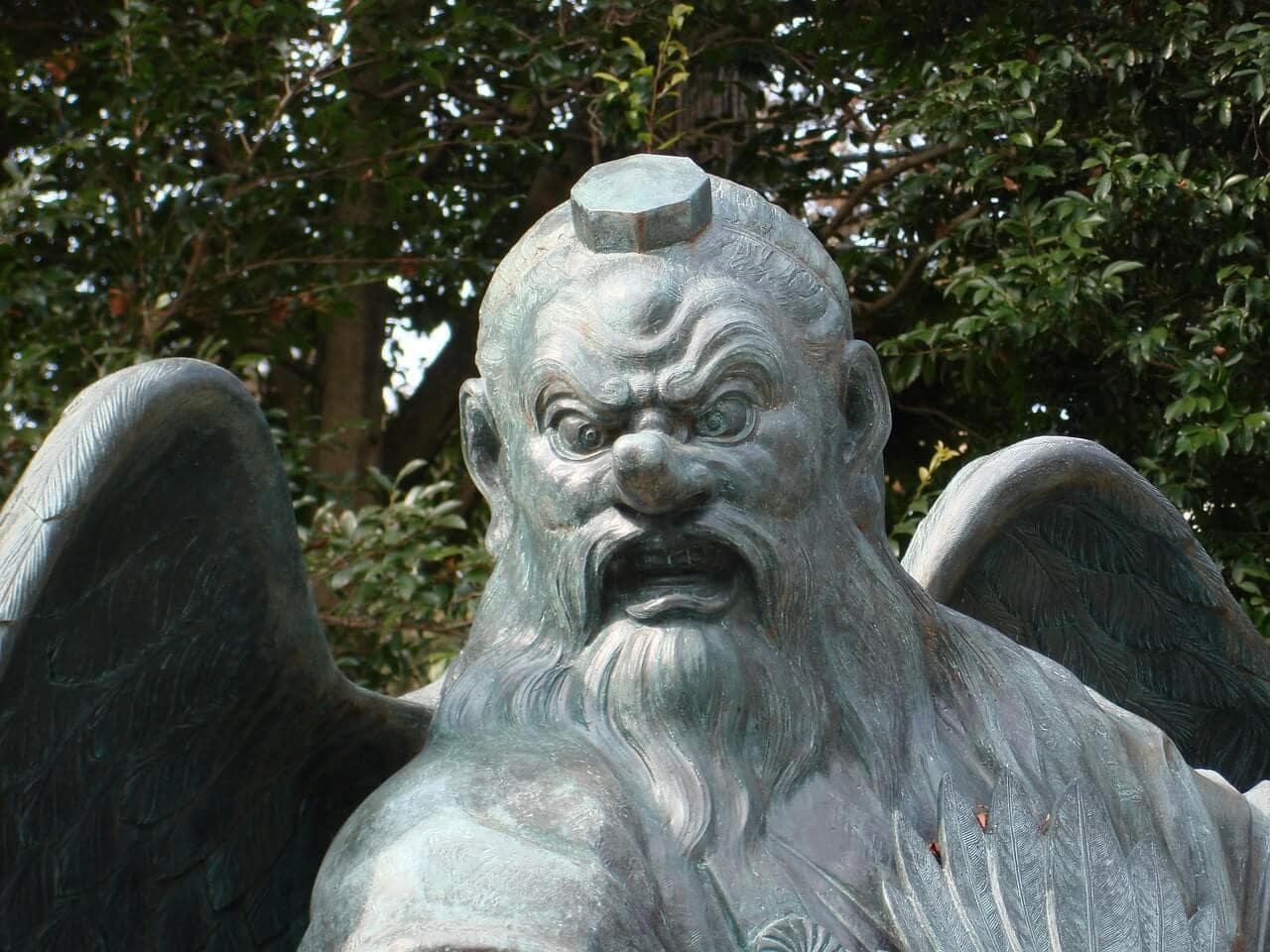
Yokai in Japanese Shintoism are most types of supernatural animalistic spirits or phenomena. Yokai can be supernatural animals, demons, animated objects, ghosts, mutated or cursed people, and even some minor kami and demi-gods.
The word yokai comes from:
- yō, meaning attractive, bewitching, calamity
- kai meaning mystery, wonder
Put together, the idea is of an attractive yet calamitious mystery. And that’s the best way to describe yokai in English as there’s no better direct translation.
Simply calling yokai spirits doesn’t really cut it as many yokai are not spirits. Calling them “supernatural beings” is probably closer to the truth but there are supernatural beings in Shintoism that aren’t yokai.
So, it’s best to just use the word yokai in English as it is, as there isn’t a direct translation.
Yokai vs. Spirits
Not all yokai are spirits, however, and not all spirits are yokai either. In traditional Japanese mythology, all things are believed to be possessed by spirits – people, animals, plants, and even inanimate objects. Even natural phenomena such as rain and earthquakes are said to be possessed by spirits.
Spirits: Spirits have both personalities and emotions but they are usually peaceful and don’t interact with the physical world, outside of simply possessing whatever it is they are possessing. Usually called nigi-mitama (when they are “good”) or ara-mitama (when they are “bad”), these spirits are not yokai. Instead, they are their own thing.
Yokai: Yokai spirits are separate beings that can operate in the real world without possessing anyone or anything. Many of them can forcefully possess people or animals but that’s not their “natural” form. Yokai, whether spirits, demons, goblins, or ghosts, are self-contained beings that can roam around on their own.
Are Yokai Good or Evil?
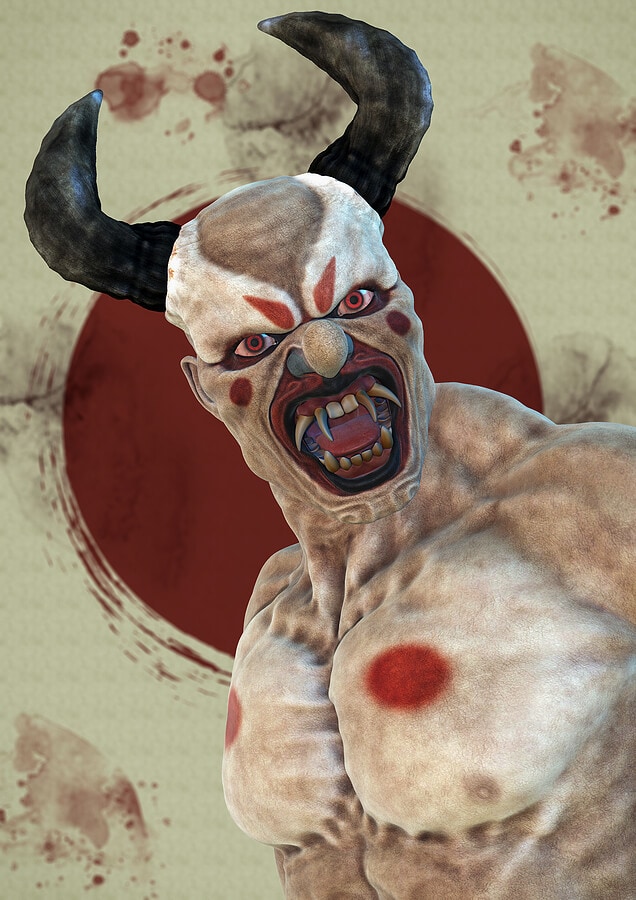
Yokai can be either good or evil depending on the specific yokai in question, but they are usually morally ambiguous.
Some yokai are almost always good and are even dedicated to the service of a particular kami. Such is the case with the famous zenko kitsune (fox-like) yokai – the famous nine-tailed foxes that serve the kami Inari.
Other yokai, however, like the flying demons, called Tengu, are usually evil and are only rarely viewed as morally gray.
Types of Yokai
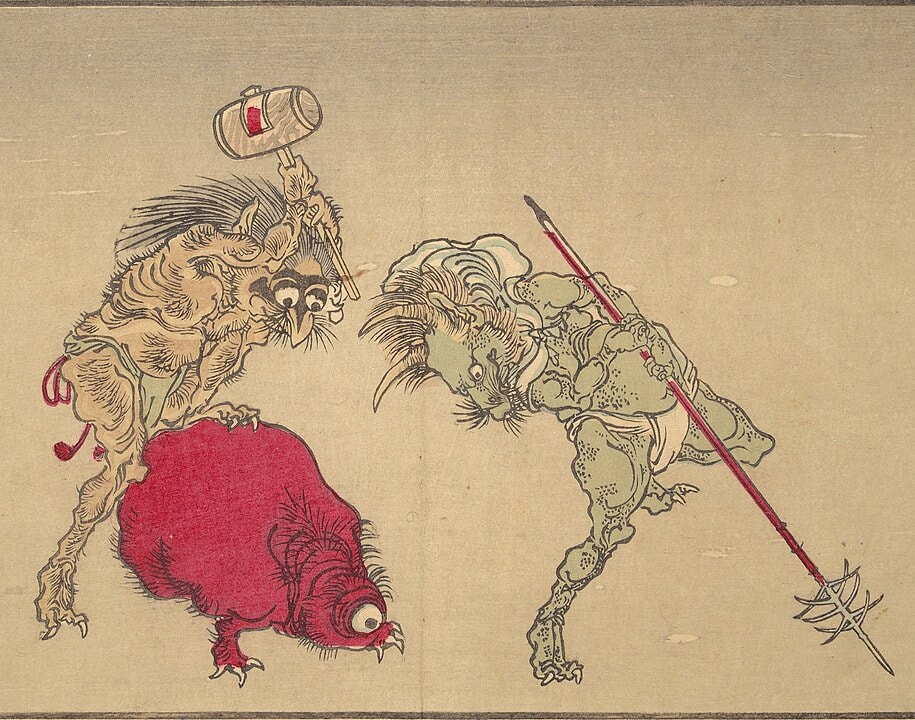
There are many different ways to categorize yokai and none is “more true” than the others. Because yokai are such an unclear type of beings, many scholars can’t even agree on what exactly yokai are and which beings are yokai or which aren’t.
For example, some people call minor kami gods yokai while others insist that they are strictly kami. Another point of contention are the henge beings – changed people/things or mutants. Some view those as a type of yokai while others believe they are their own category.
Most people nowadays seem to view yokai as broadly as possible – with all supernatural Shinto creatures and spirits (aside from the kami gods) seen as different types of yokai.
Generally, however, most yokai are divided into the following categories:
- Supernatural animal spirits
- Supernatural plant spirits
- Cursed or mutated people, animals, or objects
- Reincarnated or afterworld spirits
- Demon-like or goblin-like evil spirits
Symbolism of the Yokai
Yokai symbolize everything supernatural in Japanese mythology. Most come from Shintoism but many are also influenced by Japanese Buddhism, by Chinese Taoism, or even by Hinduism.
Depending on the yokai in question, these beings can symbolize anything from cataclysmic natural events to simple, everyday animal quirks. Together, however, yokai symbolize the magical mystery of the world around us – everything we can’t yet explain and everything our imaginations can conjure.
Importance of Yokai in Modern Culture
It’s fair to say that yokai are living a “second life” in Japanese culture right now.
For countless centuries yokai used to be viewed as invisible and unseen spirits. When paintings and illustrative arts became popular in Japan, however, yokai started gaining visual representations. They truly rose to prominence during the Edo period (1603-1868) when portraying them in art became much easier and more captivating. Unfortunately, began to be ignored during the Meiji period of modernization, when they began to be viewed as outdated and silly superstitions.
After World War II, however, Japan rediscovered its roots, and yokai, kami, and other beautiful myths started captivating people’s imaginations again. Manga artist Shigeru Mizuki was instrumental for that switch thanks to his now-legendary comic series GeGeGe no Kitaro.
Today, yokai can be found in every other Japanese manga, anime, or video game. Hayao Miyazaki’s movies are especially famous for their gorgeous and imaginative yokai spirits but so are other works of art such as Mushishi, Kamisama Kiss, Hakkenden – Eight Dogs of the East, Zakuro, The Morose Mononokean, and many more.
FAQs About Yokai
Yokai are supernatural monsters and creatures with diverse habits, behaviors and appearances.
Depending on the type of yokai, it can be evil and dangerous while others can be benevolent and bringers of good fortune.
Some popular yokai include tengu, oni, kitsune, obake and kappa.
Wrapping Up
The yokai are among the most distinctly Japanese creations, populating the myths and bringing life to them. While there’s no generally accepted consensus on what exactly the yokai are, the overview is that they’re seen as supernatural, mystical entities that are either mischievous or benevolent, with each type of yokai having its own characteristics.





